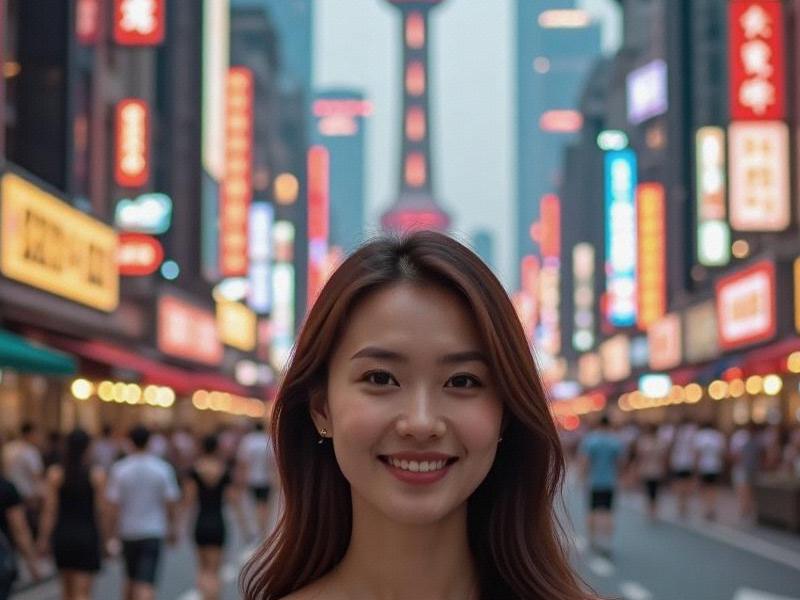An in-depth exploration of Shanghai's evolving high-end entertainment club industry and its impact on the city's social dynamics and nightlife economy.

The neon lights of Shanghai's Huangpu District cast an electric glow over the newest generation of ultra-luxe entertainment clubs that have become the playgrounds of China's elite. From the 68th-floor sky lounge M1NT to the hidden speakeasy-style Door 19, these venues represent more than just nightlife - they're social institutions where deals are made, relationships are forged, and Shanghai's status as Asia's premier cosmopolitan city is reaffirmed nightly.
Shanghai's entertainment club industry has undergone a remarkable transformation since the early 2000s. What began as simple KTV parlors has evolved into a sophisticated ecosystem of high-concept venues combining dining, entertainment, and networking. Industry reports show:
• The city now boasts over 380 registered high-end entertainment clubs
• Annual revenue exceeds ¥12.8 billion ($1.8 billion)
• Average customer spending: ¥2,800-¥8,000 per night
• 42% of patrons are business executives entertaining clients
爱上海同城419
The architecture of these clubs reflects Shanghai's fusion of East and West. At the newly opened Cloud 9 in the Shanghai Center, designer Kengo Kuma created a space where traditional Chinese latticework meets futuristic lighting installations. Meanwhile, the members-only Club 33 in the Former French Concession transports guests to 1930s Shanghai with its art deco interiors and live jazz performances.
Business culture drives much of the industry's growth. "About 60% of our revenue comes from corporate bookings," reveals David Chen, manager of the exclusive Dragon Phoenix Club. "These aren't just parties - they're carefully choreographed business events where million-dollar deals are closed over premium baijiu." The clubs employ specialized "business hostesses" trained in everything from mixology to M&A small talk.
Entertainment offerings have become increasingly sophisticated. Where simple karaoke once sufficed, top clubs now feature:
上海龙凤论坛419 • Private concert spaces with rotating international artists
• Interactive digital art installations
• AI-powered mixology stations
• Themed nights curated by celebrity guest directors
The clientele represents a fascinating cross-section of Shanghai society. Regulars include tech entrepreneurs, fashion influencers, old-money heirs, and a growing number of international business travelers. "It's like a live sociology experiment," observes nightlife blogger Emma Zhao. "You'll see third-generation Shanghainese tycoons chatting with crypto startups kids, all united by the desire to see and be seen."
上海贵族宝贝sh1314
Regulation remains a constant challenge. Since the 2013 anti-corruption crackdown, clubs have had to navigate strict policies while maintaining profitability. The most successful have adapted by emphasizing "cultural experiences" over pure indulgence and developing more transparent billing systems. "We're not selling alcohol - we're selling memorable moments," explains Bar Rouge's marketing director Claire Wen.
The pandemic brought unexpected innovations. When lockdowns shuttered venues, clubs like Muse 2 launched virtual reality party platforms where VIPs could socialize via avatar. Now hybrid physical-digital memberships are becoming standard, with apps allowing patrons to reserve tables, order bottles, and even send digital gifts to other guests before arriving.
As Shanghai positions itself as a global luxury capital, its entertainment clubs serve as both mirror and catalyst of this ambition. The next frontier? Mega-complexes like the upcoming Galaxy World, which will combine a Michelin-starred restaurant, private art gallery, and members' club under one roof. "Shanghai doesn't follow trends - it creates them," says nightlife impresario Jacky Lin. "What we're building here will redefine luxury entertainment worldwide."
Yet beneath the glittering surface, these clubs remain deeply rooted in Shanghai's unique social fabric. They're places where guanxi is cultivated over vintage cognac, where the children of factory workers rub shoulders with scions of political dynasties, and where the city's relentless energy finds its most vivid expression. In a metropolis constantly reinventing itself, the entertainment club endures as both sanctuary and stage - the place where Shanghai comes to see what it's becoming.